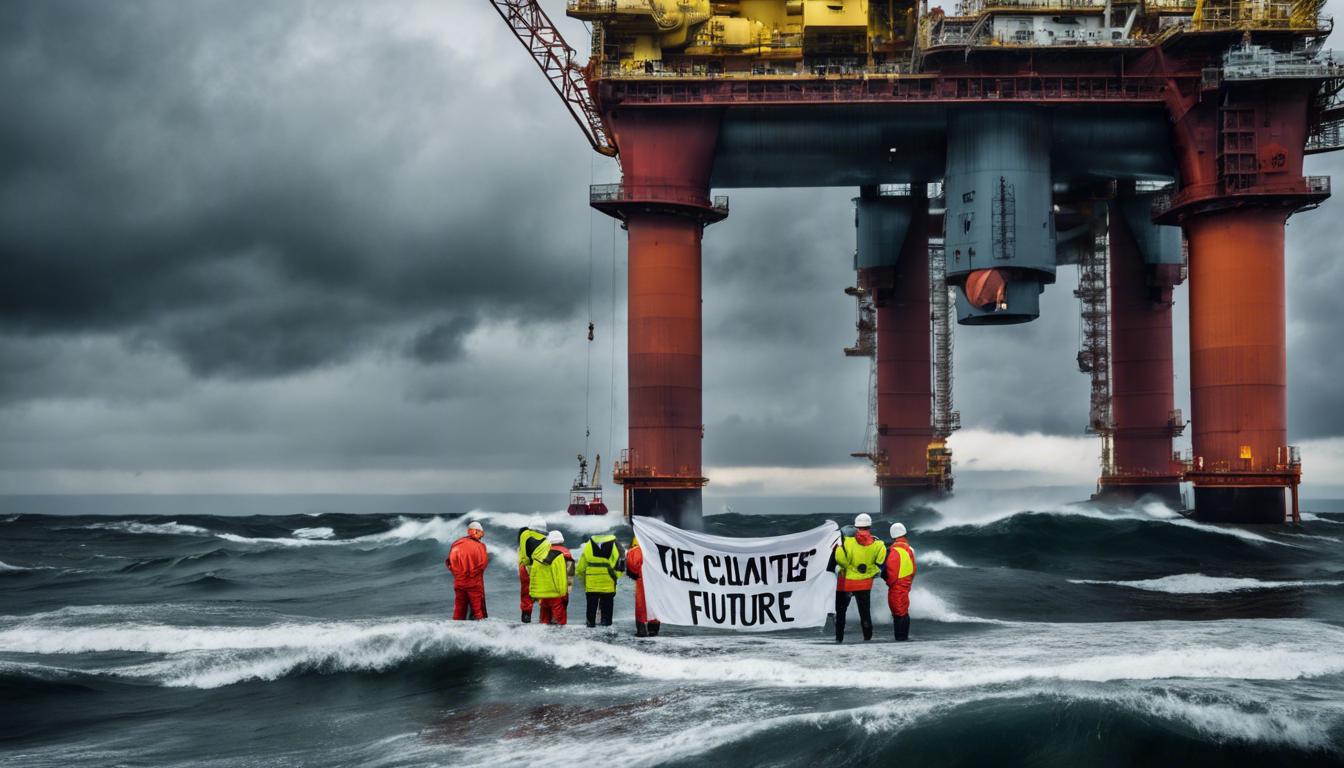Protesters from across Europe, led by Extinction Rebellion, have launched a series of protests against North Sea oil and gas operations, highlighting the conflict with the Paris Agreement’s goals.
Climate activists from several European countries have launched a series of protests targeting North Sea oil and gas infrastructure to campaign against the continued extraction of fossil fuels. The protests, involving blockades and demonstrations, took place across Germany, the Netherlands, Norway, Sweden, Scotland, and Denmark. These actions are part of a coordinated effort led by environmental group Extinction Rebellion (XR) under the North Sea Fossil Free campaign.
The protests aimed to highlight the contradiction between current drilling plans and the goals of the Paris Agreement, which seeks to limit global heating to 1.5°C. In specific incidents, activists in Norway obstructed access to a petroleum refinery, while in the Netherlands, a blockade was mounted at Shell’s Pernis refinery. Similar tactics were employed in other participating countries, with activists in Scotland staging banner drops at strategic locations to protest recent government approvals for new oil and gas extraction licenses.
The movement also saw actions targeting companies like Equinor and Ithaca in Aberdeen, Scotland, and disruptions at Shell’s refinery near Rotterdam and the Liquified Natural Gas terminal in Brunsbuttel, Germany. These events underscored the collective effort by environmental activists across the North Sea region to challenge the prevailing reliance on fossil fuels.
This wave of protests was partly motivated by a report indicating that countries in the North Sea region, including the UK, Germany, the Netherlands, Norway, and Denmark, have not aligned their oil and gas extraction policies with their climate commitments under the Paris agreement. Extinction Rebellion and its allies argue that continued fossil fuel extraction contributes to environmental degradation in the North Sea and exacerbates the global climate crisis. The activists are calling for an immediate shift in policy towards sustainable energy sources to combat climate change effectively.













